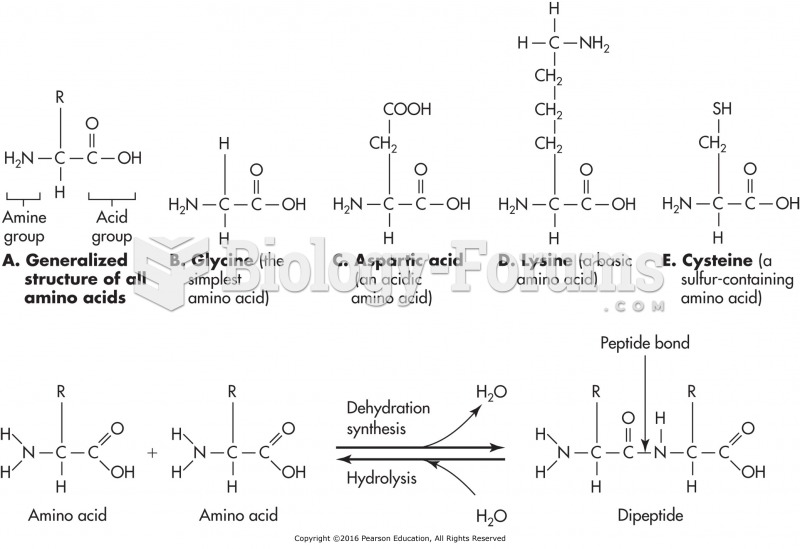|
|
|
ACTH levels are normally highest in the early morning (between 6 and 8 A.M.) and lowest in the evening (between 6 and 11 P.M.). Therefore, a doctor who suspects abnormal levels looks for low ACTH in the morning and high ACTH in the evening.
The immune system needs 9.5 hours of sleep in total darkness to recharge completely.
The liver is the only organ that has the ability to regenerate itself after certain types of damage. As much as 25% of the liver can be removed, and it will still regenerate back to its original shape and size. However, the liver cannot regenerate after severe damage caused by alcohol.
The people with the highest levels of LDL are Mexican American males and non-Hispanic black females.
Blood is approximately twice as thick as water because of the cells and other components found in it.







